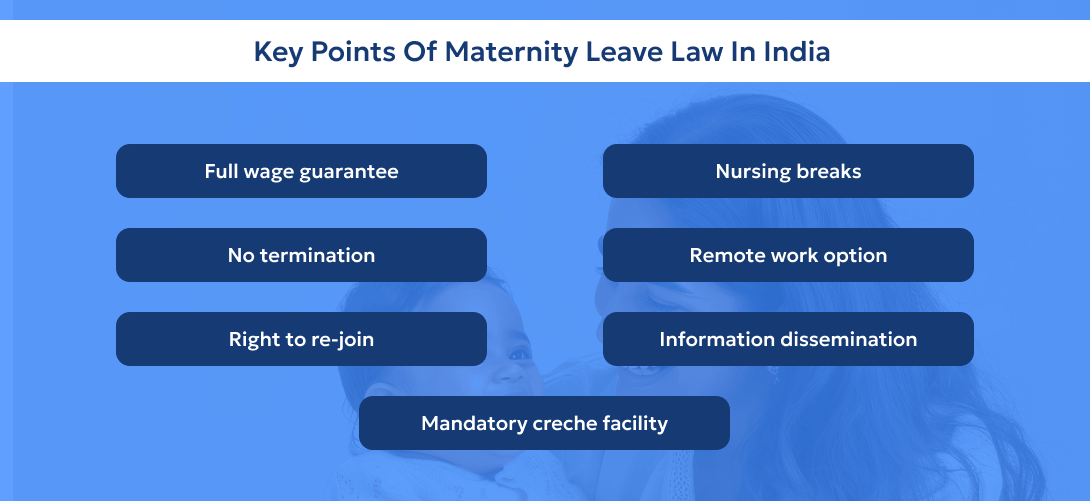
Table of Content
Is your company truly compliant with maternity laws—or just assuming it is?
A Pune-based IT firm made headlines in 2024—not for innovation, but for firing an employee after she informed HR about her pregnancy. Despite the Maternity Benefit (Amendment) Act, 2017, guaranteeing women 26 weeks of paid maternity leave, the company denied her this right.
A legal complaint followed. The court ruled against the company, leading to policy updates. Sadly, this isn’t rare. It reflects a trend seen in many companies.
Maternity benefit is not just a leave. It’s a fundamental right that ensures a woman isn’t forced to pick between her job and motherhood. For employers, recognizing this right goes beyond legal obligation—it’s about building a workplace culture rooted in care, dignity, and equal opportunity for every employee.
Non-compliance with the Maternity Benefit Act can bring legal trouble and negative publicity. To build an inclusive workplace, employers must understand the law and support their teams through life’s big transitions.
In this blog, we’ll explain:

This maternity leave duration in India ensures that new mothers have the time they need to rest and bond with their child.
Now that we’ve covered how long the leave lasts, let’s explore what else the maternity leave law in India requires from employers.

Failing to comply with the maternity leave law in India not only opens the door to legal trouble but also weakens employee morale and trust. Even one misstep can cost your business its reputation and loyal talent.
So, what happens if you ignore the rules? Here’s what non-compliance can lead to:

Compliance isn’t a one-time task—it needs clear planning and regular effort across your whole organization. And you don’t have to do it all on your own. We’re here to help you.
Here’s how Vishaal Consultancy Services can help:
As more women become part of the workforce, knowing and applying the Maternity law in India is not just a legal step—it’s essential for building a supportive workplace.
Not sure if your policies are up to date? That’s where Vishaal Consultancy Services comes in. As experienced labor law consultants in Bangalore, we help businesses stay on top of changing regulations—from maternity leave laws to full-scale labor law advisory and HR support.
Whether you’re building policies from scratch or refining what you already have, we’ll help you stay compliant, efficient, and people-first. Let’s make HR one less thing to worry about—reach out to Vishaal Consultancy Services today.
See Related Blogs
BLOGS
Fill in your details to download our exclusive e-learning document.
Fill in your details to download our exclusive e-learning document.
Fill in your details to download our exclusive e-learning document.